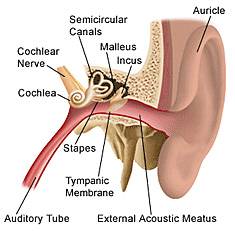Overview

Grommets are tiny plastic ventilation tubes that are flanged at the end. They are inserted into the eardrum, to equalise pressure in the ear.
Some children may need their grommets replaced as they are naturally expelled with the growth of the eardrum.
Why Is It Done ?
Either acute middle ear infection called otitis media or a blockage of the Eustachian tube known as glue ear are the most common reasons that insertion of grommets is required. In the majority of cases, these conditions affect children but adults can also be affected.
Glue ear - Is a chronic ear infection.
A sticky fluid gathers inside the middle ear. Because the middle ear is normally filled with air instead of fluid, hearing can be affected when you have glue ear.
Otitis Media - This is an ear infection with the following symptoms : -
- Earache
- Deafness
- Fever
- Feeling of fullness in the ear
- Drainage of blood or pus
- Feeling unwell
- Loss of appetite
- Irritability
- Loss of balance
Because grommets allow air in from the outside, enabling fluid and mucus to drain normally, future episodes of acute otitis media are reduced as well as an immediate improvement in hearing. Parents of children afflicted with this condition notice an improvement in balance, ability to walk, disposition and sleeping.
Who Is Involved ?
The procedure is usually carried out as a day surgery patient in a specialised day surgery or hospital.
The people involved in the procedure are : -
- The ENT (Ear, Nose & Throat) surgeon, your doctor (Specialist)
- Anaesthetist: they give medication that make you relaxed and sleepy and look after you whilst the procedure is being carried out
- Nurses for the procedure and recovery
How Do I Prepare For The Surgery ?
You are normally required to fast for at least 6 hours prior to general anaesthetic.
Young children and babies are required to fast from clear fluids for 2 hours, other fluids for 3 or 4 hours and approximately 5 hours for solids. Surgery for young children and babies is scheduled first to lesson the discomfort of fasting. Your surgeon will have his/her own specific preparation requirements and those, along with any instructions given to you by the day surgery or hospital, should be strictly followed.
What Happens To Me At The Day Surgery/Hospital ?
- When you arrive at the day surgery or hospital, the admissions clerk will attend to the associated paperwork for your stay.
- On admission the nurse will request your medical history, confirm your medication and ask you about any known allergies. The surgeon has usually already attended to you signing the operation consent form in his rooms at the time of booking the surgery. An anaesthetist may see you at that time or when you are in the procedure room, to explain what to expect with general anaesthetic.
- Having completed the admission processes, you/your child will then be taken to theatre.
Possible Complications
As with any operation under general anaesthetic, there is a very small risk of complications related to your heart and lungs. The tests that you will have before the operation will make sure that you can have the operation in the safest possible way and will bring the risk for such complications very close to zero.
The operation is successful in about 70% of patients. The remaining 30% might need the grommet re-inserted on one or more occasions.
If you follow the advice listed above, the grommet is unlikely to cause you any problems. Occasionally people notice a popping or clicking in the ears. This is not harmful and is expected and you should not worry about it.
For more information, medical assessment and medical quote
as email attachment to
Email : - info@wecareindia.com
Contact Center Tel. (+91) 9029304141 (10 am. To 8 pm. IST)
(Only for international patients seeking treatment in India)










